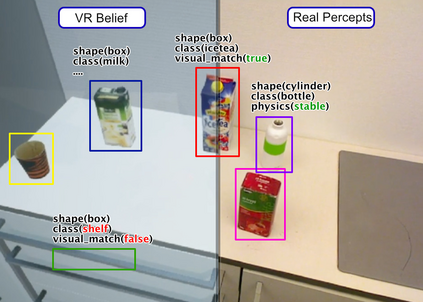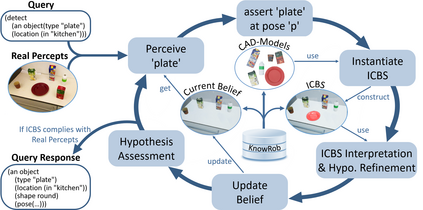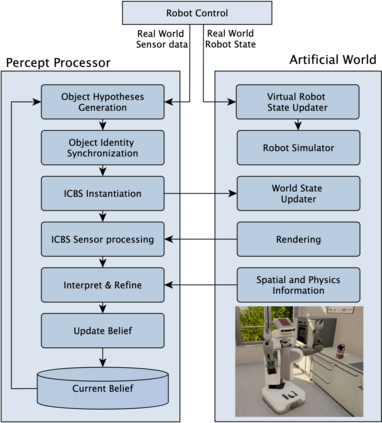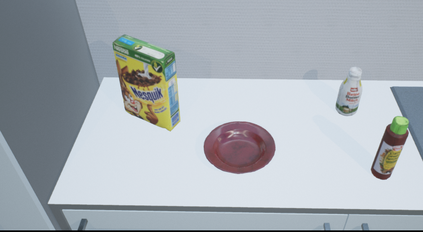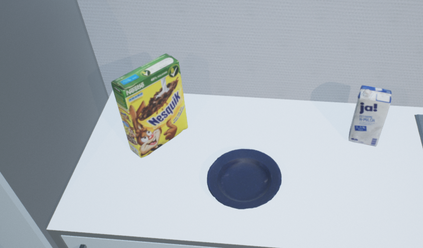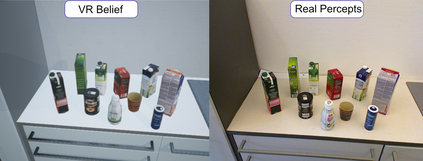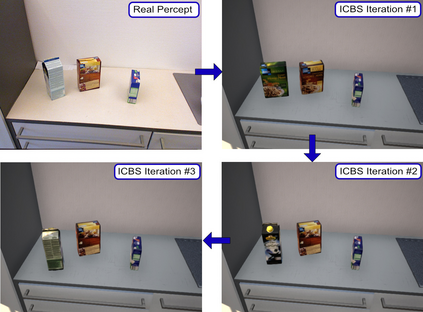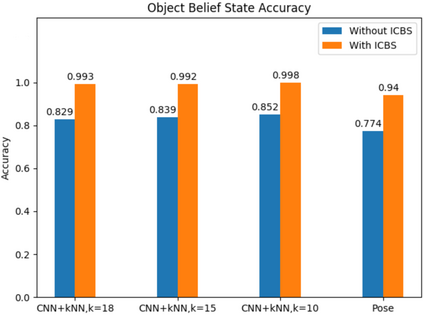Many of today's robot perception systems aim at accomplishing perception tasks that are too simplistic and too hard. They are too simplistic because they do not require the perception systems to provide all the information needed to accomplish manipulation tasks. Typically the perception results do not include information about the part structure of objects, articulation mechanisms and other attributes needed for adapting manipulation behavior. On the other hand, the perception problems stated are also too hard because -- unlike humans -- the perception systems cannot leverage the expectations about what they will see to their full potential. Therefore, we investigate a variation of robot perception tasks suitable for robots accomplishing everyday manipulation tasks, such as household robots or a robot in a retail store. In such settings it is reasonable to assume that robots know most objects and have detailed models of them. We propose a perception system that maintains its beliefs about its environment as a scene graph with physics simulation and visual rendering. When detecting objects, the perception system retrieves the model of the object and places it at the corresponding place in a VR-based environment model. The physics simulation ensures that object detections that are physically not possible are rejected and scenes can be rendered to generate expectations at the image level. The result is a perception system that can provide useful information for manipulation tasks.
翻译:今天许多机器人感知系统都旨在完成过于简单和过于困难的感知任务。 它们过于简单化, 因为它们不需要感知系统来提供完成操作任务所需的全部信息。 通常, 感知结果并不包括关于物体部分结构、 表达机制以及适应操纵行为所需的其他属性的信息。 另一方面, 所描述的感知问题也太难, 因为 -- 不同于人类 -- 感知系统无法利用人们对其全部潜力的预期。 因此, 我们调查适合机器人完成日常操作任务的机器人的机器人感知任务的变异性, 如家用机器人或零售店的机器人。 在这种环境下, 有理由假定机器人了解大多数物体, 并拥有这些物体的详细模型。 我们建议一个感知系统, 以物理模拟和视觉显示的方式保持对环境环境的信念。 当检测对象时, 感知系统会检索对象的模型, 并将其置于VR环境模型中相应的位置。 物理模拟确保实际无法检测的物体得到拒绝, 并且场景可以在图像上产生期望值。 结果是, 一种系统能提供有用的感知。


